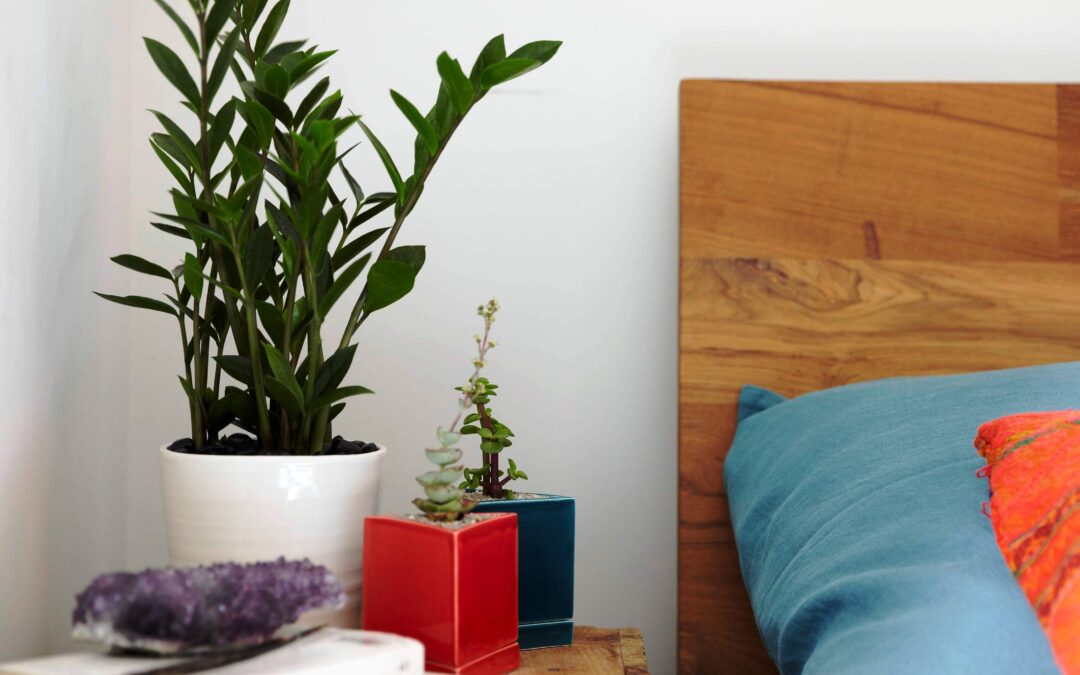A Breath of Fresh Air
By Lisa Watters-Lain, Arizona’s garden gal
The seals on today’s ultra-efficient homes keep outside air from penetrating their interiors, thus recirculating inside air without added freshness. A three-month-old air filter cleans only so many particles before choking on its own dust. We won’t mention formaldehyde-ridden foreign products brought into the home for the holidays. In the past, toxins weren’t an environmental problem because fresh air was ever-present. Now that we’ve made our homes nearly airtight, the freshness that indoor plants provide is more vital than ever.
By releasing oxygen and decreasing dust and pollutants in the air, plants remove contaminants and actually help us fight colds. They reduce stress by providing a peaceful, zen-like atmosphere. Houseplants add beauty and dramatically improve the health of our indoors.
A good rule of thumb is to have one eight-inch houseplant per smaller room of a home, and a larger floor plant for larger living and family room spaces. Here is a list of the most popular plants grown indoors for a healthful environment and easy to grow.
#1 Croton. There are many different varieties of Croton, each with varying forms of foliage. All have broad leaves dipped in exotic patterns. The most popular is ‘Petra,’ which has shades of yellow, red, and green. This has long been a favorite houseplant for adding a punch of color. Crotons thrive in low light areas but display more color when placed in brighter rooms. Water at weekly intervals, or as the soil becomes dry.
#2 ZZ plant. With its tall succulent stems and architecturally bold structure, this plant is a favorite for homes with modern décor. It requires little maintenance and is nearly indestructible, making it the perfect plant for those who travel a lot. Place ZZ in medium to high light and water it only when soil is bone dry.
#3 Money Plant. Many people believe this plant is lucky and a symbol of wealth. Fung Shui design uses this plant to draw green into a room. Standing upright with green leaves above the trunk, it adds drama to any room. Simply effortless to maintain, grows in any light condition, and can be completely dry between waterings.
#4 Peace Lily. This beauty has undoubtedly been the most common houseplant for years, and with good reason. It’s an easy plant to care for that produces beautiful white blooms throughout the year. It grows well in the dark rooms of your house. Peace lilies like to have consistent moisture.
#5 Maidenhair Fern. This delicate little fern, with soft, small green leaves on gracefully black stalks thrives in high-humidity environments like a bathroom or kitchen. Increase the humidity around a maidenhair fern by placing it on a tray of pebbles and maintaining water in the tray.
#6 Variegated Creeping Fig. This vining plant has puckered, heart-shaped green and white leaves and lends itself to hanging baskets or training as a topiary. Place it in a bright spot and keep the soil evenly moist.
#7 Golden Pothos. This vining plant is one of the easiest to grow. Place it on a table or shelf or in a hanging basket and let the vines grow and trail. If preferable, add a pole for it to grow up. Grow it in low to medium light and allow the soil to dry between waterings.
#8 Calathea. Featuring large, colorful patterned leaves in shades of deep green and purple, this mid-sized upright plant does well on a tabletop or as a floor plant. It prefers a bright spot, but the leaves are sensitive to direct sunlight from a Southern exposure. Allow the soil to dry slightly before watering.
#9 English Ivy. English Ivy is often grown outdoors as a ground cover and a popular indoor plant. This trailing plant is pretty when trained into a topiary or cascade from a tabletop or hanging basket. Grow ivy in a high light area and keep the soil evenly moist.
#10 Creeping Fig. Whether the reliable green or variegated variety, a creeping fig is easy to grow. Figs are the super scrubbers of indoor air pollutants.
Enjoy better air quality and health this winter with these Top 10 houseplant ideas.
Lisa Watters-Lain can be found throughout the week at Watters Garden Center, 1815 W. Iron Springs Rd in Prescott, or contacted through her website at WattersGardenCenter.com or Top10Plants.com.

